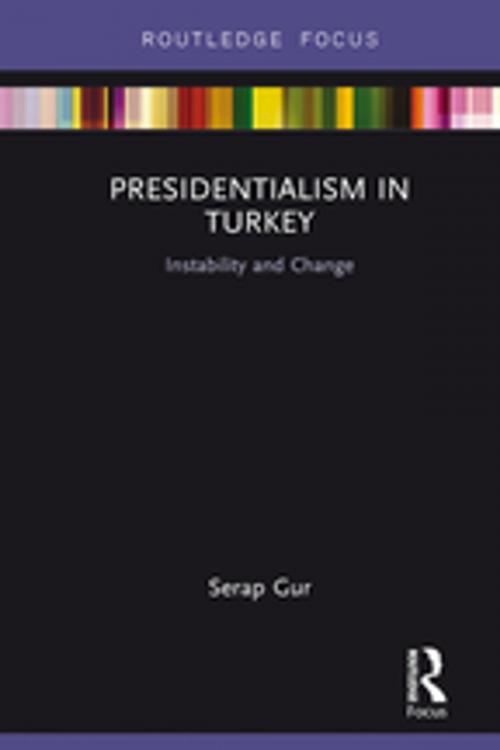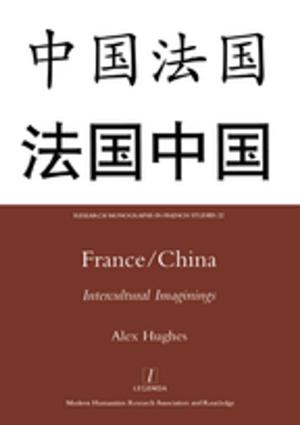Presidentialism in Turkey
Instability and Change
Nonfiction, Social & Cultural Studies, Political Science, International, Social Science| Author: | Serap Gur | ISBN: | 9781315303178 |
| Publisher: | Taylor and Francis | Publication: | December 8, 2016 |
| Imprint: | Routledge | Language: | English |
| Author: | Serap Gur |
| ISBN: | 9781315303178 |
| Publisher: | Taylor and Francis |
| Publication: | December 8, 2016 |
| Imprint: | Routledge |
| Language: | English |
Parliamentarism has been a presiding characteristic of the Turkish political tradition since the 1876 Ottoman constitution. In 1923, with the founding of the Turkish Republic, modern parliamentarism was implemented in Turkey. Since that time, Turkish politics has been turbulent, with four military coups, a number of short-lived multiparty coalitions, and several ineffective governments. Many scholars have argued that the main reason for this instability is the parliamentary system of government, so Turkey must therefore adopt a presidential system.
Presidentialism in Turkey uses both quantitative analysis and country-based comparisons to explore whether such a change might solve Turkey’s main political problems or if it might in fact create more problems for the nation. The relationship between government systems and political, economic, and social development is explored in a time-series analysis covering the period 1975–2014 for Turkey. It is argued that during this time period, the parliamentary system was better than the presidential system at boosting economic and political development, whereas the presidential system provides better social development. Furthermore, a country-based analysis in which Turkey is compared with other states that have used a presidential system at some point since 1975 highlights that each country has its own specific characteristics that affect its economic and political success. Thus, a regime transformation to a presidential system will not necessarily improve Turkey’s economic, political, and social development.
By including a comparison of all presidential, parliamentary, and semi-presidential systems, this book helps to shed new light on what is a very controversial topic in Turkey. It will therefore be a key resource for students and scholars of Turkish studies and comparative politics.
Parliamentarism has been a presiding characteristic of the Turkish political tradition since the 1876 Ottoman constitution. In 1923, with the founding of the Turkish Republic, modern parliamentarism was implemented in Turkey. Since that time, Turkish politics has been turbulent, with four military coups, a number of short-lived multiparty coalitions, and several ineffective governments. Many scholars have argued that the main reason for this instability is the parliamentary system of government, so Turkey must therefore adopt a presidential system.
Presidentialism in Turkey uses both quantitative analysis and country-based comparisons to explore whether such a change might solve Turkey’s main political problems or if it might in fact create more problems for the nation. The relationship between government systems and political, economic, and social development is explored in a time-series analysis covering the period 1975–2014 for Turkey. It is argued that during this time period, the parliamentary system was better than the presidential system at boosting economic and political development, whereas the presidential system provides better social development. Furthermore, a country-based analysis in which Turkey is compared with other states that have used a presidential system at some point since 1975 highlights that each country has its own specific characteristics that affect its economic and political success. Thus, a regime transformation to a presidential system will not necessarily improve Turkey’s economic, political, and social development.
By including a comparison of all presidential, parliamentary, and semi-presidential systems, this book helps to shed new light on what is a very controversial topic in Turkey. It will therefore be a key resource for students and scholars of Turkish studies and comparative politics.















